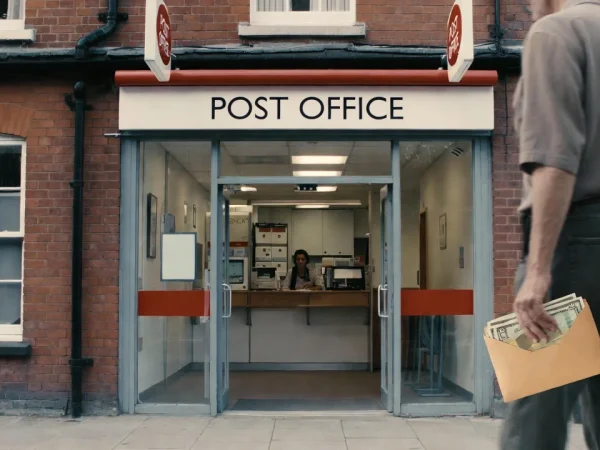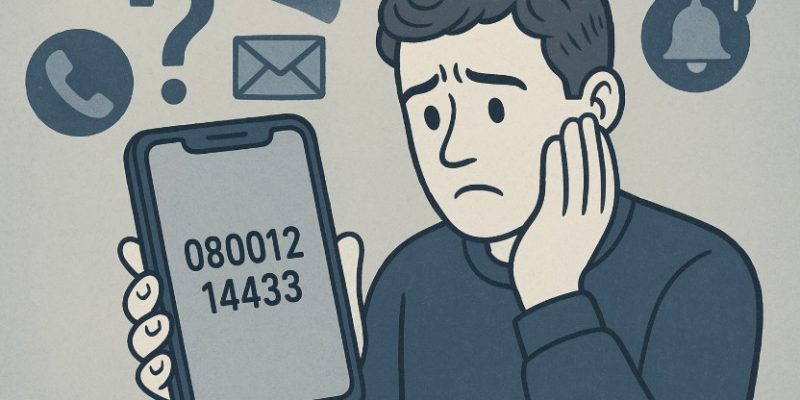
08001214433 – Who Called Me from this Number?
If you’ve received a call from 08001214433, you may be wondering who is trying to reach you and whether it’s a number you can trust.
This number is linked to the Department for Work and Pensions (DWP), specifically the Personal Independence Payment (PIP) Enquiry Line.
Many claimants across the UK rely on this helpline for updates, support, and clarification regarding their PIP claims. However, the service experience has varied widely, raising questions about its reliability and effectiveness.
What Is the Significance of 08001214433?
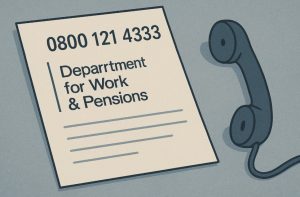
The number 08001214433 is widely recognised as the contact line for the Department for Work and Pensions’ Personal Independence Payment (PIP) Enquiry Line.
This number serves as a primary touchpoint for individuals managing their PIP claims, whether to update details, check application progress, or request assistance with documents.
Unlike many commercial helplines, this number is a freephone number, which means callers are not charged for dialling it from landlines or mobile phones.
Although it is a genuine line operated by a UK government department, it has become a focal point of user complaints due to unpredictable service experiences.
Callers may receive a ring from this number when the DWP needs further information, when they are issuing an update about a claim, or when they need to schedule a follow-up appointment or assessment.
Is 08001214433 a Genuine Government Number or a Scam?
It is natural for people to question the authenticity of unfamiliar 0800 numbers, especially given the rising number of scam calls across the UK.
However, 08001214433 is indeed an official number issued by the DWP. It is prominently listed on government websites and PIP correspondence.
Despite this, there is concern over number spoofing. Scammers have been known to falsify caller ID to make it appear as though a call is coming from a trusted source like the DWP.
For this reason, it is essential to verify the purpose of any unexpected calls. If someone receives a call from 08001214433 but is unsure about the intent or nature of the call, it is best to hang up and redial the number using contact details from official government sources.
Verifying a legitimate call from the DWP should involve:
- Matching the number against official DWP contact pages
- Ensuring the caller refers to a relevant claim or application in progress
- Confirming details only the DWP would have, such as dates or reference numbers
What Happens When You Call the PIP Enquiry Line on 0800 121 4433?
Calling the PIP Enquiry Line has become a test of patience for many individuals. The most common complaint is the amount of time it takes to get through to an adviser.
Wait times often exceed 45 minutes, and in some cases, callers report being kept on hold for over an hour without resolution.
Recently, the DWP introduced a Conversational Platform software that initially greets many callers.
This AI system is intended to handle basic queries quickly without needing a human adviser. However, it is limited in functionality and often redirects more complex issues back to human agents.
From various user accounts:
- Calls made during mid-morning and early afternoon tend to have the longest wait times
- Some callers report their issues being resolved quickly once connected to a human adviser
- Others indicate being passed back and forth between automated systems and humans, sometimes resulting in the call being dropped
While the DWP promotes the use of automation to improve efficiency, early feedback suggests it may complicate the process for users with complex needs.
How Do Real Users Describe Their Experience with 08001214433?
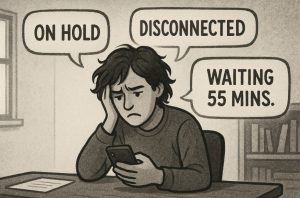
User-submitted accounts reveal a wide range of experiences with the PIP Enquiry Line. The overwhelming theme across different forums and claimant communities is dissatisfaction with long call durations and inconsistent service.
Here are a few scenarios described by real users:
- One user waited nearly an hour for a call to be answered, only to be told they would receive a callback that never arrived
- Another spent four consecutive days trying to get through, with each call ending in either disconnection or unclear instructions
- Several users noted that the AI system answered first and could only provide information about addresses or general updates, but not resolve specific questions
While some users eventually got their problems sorted, many expressed frustration at the mental and emotional toll the process took, especially when facing tight deadlines for returning forms or providing documentation.
What Are the Potential Risks of AI Chatbots Answering Government Helplines?
The DWP’s implementation of Conversational Platform technology represents a shift towards automation in public service delivery. These AI-based systems are designed to reduce wait times by answering calls immediately and handling standard enquiries.
However, this development introduces several challenges:
- Chatbots lack the context and empathy needed for nuanced conversations
- They are not equipped to answer detailed or case-specific questions
- Inaccurate routing or responses can delay issue resolution
The biggest risk lies in the perception of service improvement. While the number of answered calls may statistically increase, this does not reflect whether the calls led to actual resolutions. Users are often told to wait after the chatbot has processed initial information, sometimes facing further delays when transferred to a human.
How Can Callers Share Their Experience with the PIP Enquiry Line?
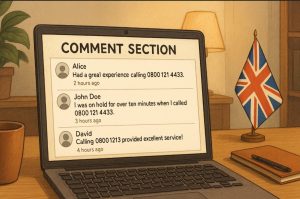
Claimants are encouraged to document and share their experiences when calling 08001214433. This can help advocacy organisations monitor service quality and hold the DWP accountable for systemic issues.
Key aspects to include in a report:
- The date and time of the call
- Duration of the wait before connection
- Whether a chatbot or human responded
- The outcome of the enquiry
Sharing this information not only helps others prepare for what to expect but also supports campaigns pushing for better service delivery in the benefits system.
Can You Report Issues to the Work and Pensions Committee?
The Work and Pensions Committee in the UK Parliament has made it clear that it wants to hear directly from claimants experiencing difficulties with DWP helplines. From April 2023, the Committee began accepting emails from the public detailing their attempts to contact services like the PIP Enquiry Line.
By collecting this feedback, the Committee can identify patterns and use that evidence in official reviews or hearings. Submissions have already helped influence discussions around form deadlines and communication barriers.
People who send feedback to the Committee are helping to improve the benefits system, not just for themselves but for thousands of other claimants.
What Should You Do If You Can’t Get Through to the PIP Helpline?
For those unable to reach an adviser through 08001214433, there are several practical alternatives:
- Try calling early in the morning as lines open or closer to 5 PM
- Consider writing a letter to the DWP with your enquiry or update
- Use the gov.uk website to check if your query can be handled online
- Contact your local MP and explain the issue, particularly if it affects your ability to meet a deadline
A small number of claimants have also found success by involving benefits advisers or third-party organisations who can make direct enquiries on their behalf.
How Can You Identify and Avoid Potential Scam Calls?
To avoid being tricked by a spoofed version of 08001214433, users should stay vigilant. Scam calls may use this number on caller ID to impersonate the DWP. These calls might ask for personal information, bank details, or National Insurance numbers.
Important steps to take:
- Never give sensitive information on a call you did not initiate
- End the call and redial the official number listed on a government website
- Report the suspicious call to Action Fraud or your mobile network provider
Most importantly, the DWP will not ask for payment or financial details over the phone. Any such request is almost certainly fraudulent.
Whar Are the Common Issues Reported with 08001214433 Calls?
Over the past year, thousands of Personal Independence Payment (PIP) claimants have shared their experiences with the Department for Work and Pensions (DWP) helpline, specifically the number 08001214433.
While this number is officially recognised as a government contact line, consistent themes have emerged in user feedback that raise concerns about service quality and accessibility.
One of the most prevalent complaints is the excessive wait time. Many users report being kept on hold for well over 45 minutes. In extreme cases, calls have lasted upwards of two hours without successful resolution.
This level of delay is not only frustrating but can have a direct impact on claimants who are trying to meet critical deadlines for submitting forms or updating details.
Another significant issue is frequent call disconnections. Some callers have mentioned that after waiting for extended periods, their calls were either dropped just as they were answered or ended automatically following a system error.
This has forced users to redial and begin the process again from the beginning.
The DWP’s recent introduction of automated chatbot technology has further complicated matters.
While designed to handle routine queries, these chatbots often fail to address more specific or complex concerns.
As a result, callers are redirected to human advisers after navigating multiple layers of automated menus, which adds to the overall time and stress.
Key Complaints Include
- Long delays before a call is answered
- Calls being disconnected after long holds
- Chatbot systems unable to resolve more detailed enquiries
- Promised callbacks that never materialise
- Repetitive transfers between automated and human agents
These issues are especially concerning for vulnerable individuals or those with mental health conditions who may find it particularly challenging to remain on hold or re-explain their circumstances repeatedly.
The table below outlines the most common problems reported by callers and examples of typical feedback:
| Issue Type | Frequency of Reports | Example Feedback |
| Long Wait Times | Very Frequent | “Waited 58 mins to get through” |
| Disconnections | Common | “Call answered and then dropped automatically” |
| Chatbot Limitations | Frequent | “Couldn’t answer my specific question” |
| No Follow-up/Call-back | Common | “Told someone would call back, no one did” |
| Lack of Human Advisers | Frequent | “AI couldn’t help, waited again for a person” |
These persistent problems not only affect service efficiency but also erode public trust in the DWP’s commitment to supporting claimants in a timely and reliable manner. For many, calling the helpline has become a last resort rather than a dependable resource for assistance.
What Are the Alternatives to Calling 0800 121 4433?
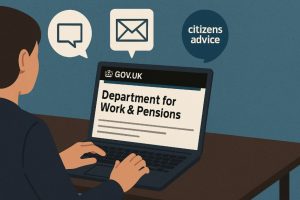
Although calling remains the most direct form of contact for many, other options are available for those facing access issues:
- Use the PIP section of the gov.uk website to review claim status or download forms
- Contact Citizens Advice or a benefits adviser for case-specific help
- Send a postal letter with your question or update to the relevant DWP office
- Visit your nearest Jobcentre Plus for in-person guidance if applicable
While none of these options replace the immediacy of a successful call, they can serve as viable backups when the helpline is inaccessible.
Conclusion
While 08001214433 is a legitimate number associated with the DWP’s PIP Enquiry Line, it remains a source of frustration for many claimants.
Issues such as long wait times, reliance on chatbot technology, and unresolved queries continue to impact customer satisfaction.
Staying informed about what to expect when calling this number—and sharing your experience can help other claimants prepare and advocate for improvements.
If your issue is urgent, using alternative contact methods or involving your local MP may help expedite resolution.
Frequently Asked Questions
What time should I call the PIP Enquiry Line for the shortest wait?
Mornings between 8:00 AM and 9:30 AM or after 4:00 PM are generally reported to have shorter wait times.
Can I speak to a real person when calling 08001214433?
Yes, but you may initially be greeted by an automated chatbot. You may need to wait or navigate through options to reach a human.
Is it safe to give personal details over the phone to this number?
Only if you have dialled the number yourself. Avoid sharing sensitive information on incoming calls unless you’re certain it’s genuine.
Why is the PIP helpline so busy?
High claimant volume, staffing issues, and system inefficiencies have contributed to excessive wait times and dropped calls.
What is the DWP “Conversational Platform”?
It is a voice-based AI system used to handle basic caller queries on DWP helplines, including 08001214433.
Can I email the DWP about my PIP claim?
No direct email address is publicly listed for PIP. However, issues can be reported to MPs or the Work and Pensions Committee via email.
What if I miss a call from 08001214433?
You can call back using the same number. If you’re unsure, verify it through official DWP contact channels before responding.




